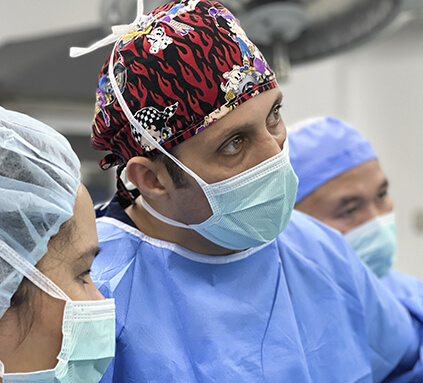Exploring The Safest Weight Loss Surgeries Today

The concept of maintaining a healthy BMI, coupled with holistic well-being, has given rise to the weight loss and fitness industry over the past few decades. Inevitably, weight has a direct impact on one’s self-esteem and confidence.
Thankfully, with the advancements in weight loss technology today, it is possible to get surgeries that can aid in this journey in a safe, effective, and sustainable way. Surgeries helping weight loss are called “Bariatric surgery”.
On average, the long-term success rate of bariatric surgery is between 68% and 74%, and the beneficial effects can be maintained for up to 20 years with proper lifestyle and dietary changes. This means that most patients who undergo bariatric surgery maintain an average of 50-75% excess weight loss, with an average patient losing at least 100 pounds.
You can be eligible for weight loss surgery if you meet any of the following conditions:
You’re obese or have a body mass index or BMI of 30 or above.
If you have a weight-related health condition, like type 2 diabetes with uncontrolled blood sugar, despite the best treatments
Your BMI is higher than 35, even if you don’t have other weight-related conditions.
You have high blood pressure, hypertension, cardiovascular disease, stroke, sleep apnea, gout & heart disease affecting your health.
All weight loss methods through diet and exercise have failed to give optimal results.
While almost all types of bariatric surgeries are considered safe and minimally invasive, here are the three best picks from around the world.
Gastric Bypass
Gastric bypass, also known as Roux-en-Y, is a bariatric procedure that alters the anatomy or position of the stomach and small intestines. The surgery divides the stomach into two parts, closing the upper section from the lower. Then, the upper stomach is connected directly to the lower section of the small intestine.
This makes the “bypassed” part of your stomach and the portion of your small intestine no longer store food- but they can contribute to producing stomach acids and enzymes to digest food. This surgery can help you lose 70% or more excess weight within two years.
Gastric sleeve
Also known as vertical sleeve gastrectomy (VSG surgery), a procedure in which a doctor removes about 80% of your stomach. The remaining part is connected to the intestines through a small pouch or sleeve.
This bariatric surgery does not affect your intestines, so it doesn’t change how your body absorbs food or makes you fall short of nutrients.
VSG surgery can support 25 to 35% body weight loss or 50 to 70% excess weight loss from your baseline starting point.
Gastric Band
This is a restrictive weight loss surgery, where an adjustable band is placed around the top portion of your stomach. This band can be adjusted to modify its volume.
The band divides the stomach into two sections: an upper pouch and a larger lower section. The two sections remain connected by a very small channel, slowing down the emptying of the stomach. This allows you to feel full with a small meal and reduces your appetite.
With gastric band surgery, you can expect to lose around 35 to 45% of excess weight.
However, it is important to remember that these surgeries require discipline with lifestyle and dietary changes to sustain long-term progress. The best option for your goals and health profile can only be recommended by a bariatric surgeon.
-

80026763
Contact Dr. Samir if you have any questions
-

Visit
02 Jumeirah Beach Rd - opposite Burj Al Arab - Umm Suqeim - Jumeirah 3 - Dubai
Opening Hours:
9am-9pm (Saturday- Thursday)
9am-6pm (Saturday)







